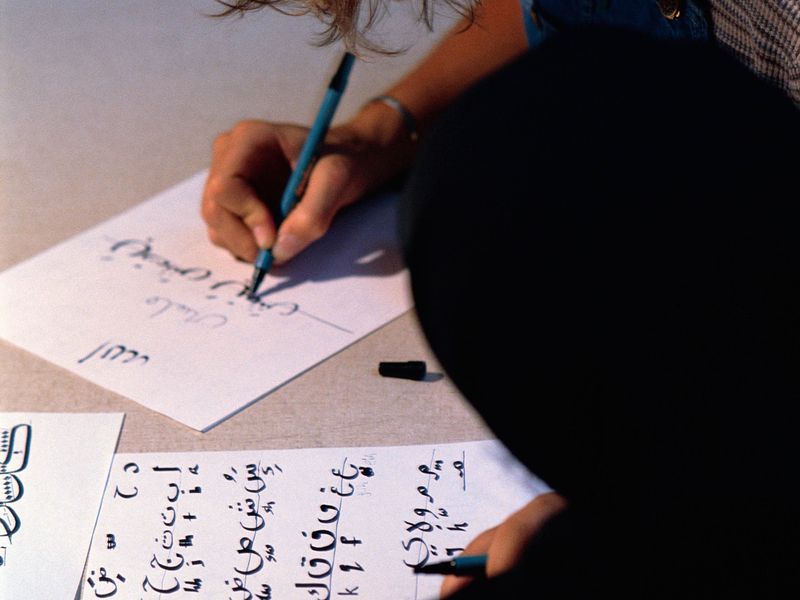Without a doubt, the biggest problem faced by most learners of Arabic is speaking, and the reason for this is quite simple: In a typicalArabic language course, beginners normally spend most of their time reading from their textbooks, listening to the lectures and writing their in-class and homework assignments. When the chance for speaking is presented in class, it is usually very minimal as the instructor tries to give equal time to every student. This means that, out of a typical two-hour lecture, only about 3 minutes of actual speaking time is given on average. As a result, students have to come up with other ways to practice speaking in Arabic. Here are just a few:
Read Out Loud

When you’re reading something in Arabic, read it out loud. Reading aloud helps to train the muscles of your mouth and diaphragm to producethe unfamiliar words and sounds found in Arabic.Speed is not the important thing here, but focus on the correct pronunciation first.As you practice more and more, you will get faster, but remember, this is not a speed reading contest. You’re reading out loud to practice your pronunciation, so you can read as fast as you want, but if nobody understands you, then there is no point in being able to speak quickly.
Think about What You Want to Say Ahead of Time
Even in your mother tongue you may run out of things to say, so how much more quickly will you run out in a language you’re only just learning? One thing that can help is to prepare what you want to say ahead of time by writing it down and repeating it. This way you’llnever be at a loss for words in yourArabic conversations.
Repeating Dialogue (Shadowing)
When you’re listening to an audio recording of an conversation in class, watching Arab TV, or even listening to Arab music on the radio, try repeating everything back to yourself out loud. (Obviously you’re not going to want to do that on the bus or while you’re having a conversation with somebody.) This “shadowing” technique is very effective for increasing fluency and improving your accent, making it easier for you to be understood.
Practice Makes Perfect
Let’s face facts: most learners don’t review! However, if youpractice repeating lines again and again, you’ll be speaking better, faster and with more confidence in no time. Remember this old adage: “If you don’t use it, you’ll lose it.” Use it! Don’t lose it!

Don’t be Afraid to Make Mistakes!
You may make mistakes. People will laugh at you when you do. But it’s okay. Don’t let that stop you from practicing. Learn from your mistakes and keep practicing. The more you speak, the faster you learn. From the supermarket to the taxi to drinking coffee when you meet and chat with your Arab friends, practice speaking every chance you get: whether it’s ordering coffee, shopping or asking for directions.
If you would like to learn more about the Arabic language or Arab culture, please visit us at kaleela. And don’t forget to check our recently launched kaleela Arabic language learning app featuring the latest in voice recognition technology that will have you speaking Arabic like a native in no time at all.

